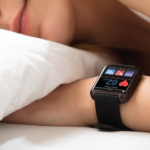WASHINGTON, D.C.—Patient advocates, researcher-clinicians and academic leaders are calling for closer scrutiny of new technologies applied within healthcare, saying they are especially concerned that these digital tools are being developed and implemented without proponents focusing enough on how they are affecting patient care.
Several of these healthcare insiders spoke during the day-long Science of Patient Engagement Symposium organized by the National Health Council (NHC) in May following a keystone speech by U.S. Food & Drug Administration (FDA) Commissioner Robert M. Califf, MD, that also addressed health technology issues in part. They noted the potential for innovative digital tools to aid patient care in the long run, but they worry these technologies are more immediately transforming healthcare for the worse—and doing so without accounting for input from patients and their advocates.

Mr. Rutta
“This symposium is a call to action,” NHC CEO Randall Rutta said during his opening remarks at the National Press Club. “We need to listen and deploy new technologies encompassing equity,” for example. “Digital and artificial enhancements open a world of life-saving opportunities in healthcare,” he said in a news release issued by NHC in conjunction with the event, “but it is important that we listen to patients and compassionately deploy new technologies equally and advance patient science in a way that guarantees patient rights to dignity and privacy.”
The Digital Divide
Nicol Turner Lee, PhD, senior fellow of governance studies and director for the Brookings Institution’s Center for Technology Innovation, Washington, D.C., said she is concerned about how some new tools and the spread of telehealth are impacting minority communities. Biases have already been identified when these technologies have been used.

Dr. Turner Lee (left) speaks with session moderator Beth Mathews-Bradshaw.
What’s more: “Very elite communities” are developing and testing these tools on minority communities, Dr. Turner Lee said, noting that is not just limited to racial minorities. Overall, “I’m afraid of it [new technology in healthcare] because it is unhinged,” she said. “It is coming without auditing and checking and validity for most models.”
Discussion about the so-called digital divide used to center around who was online and who was not, she said. But it is now multi-layered and affects patients’ quality of life in ways that matter because their health is often harmed when they don’t understand how to use the new tools.


